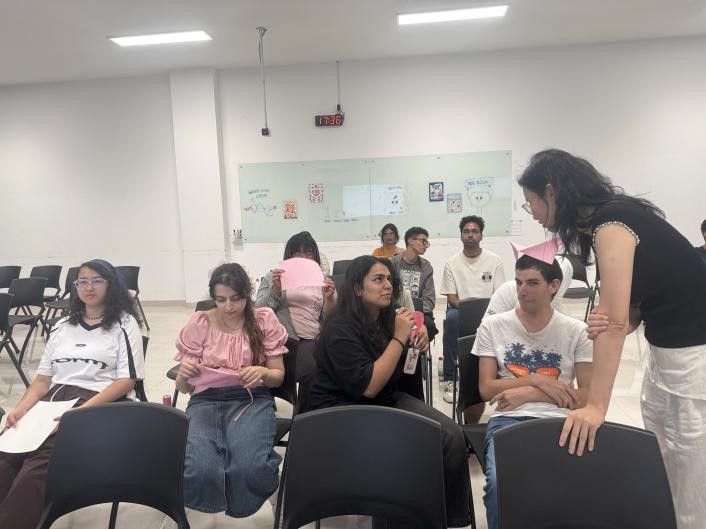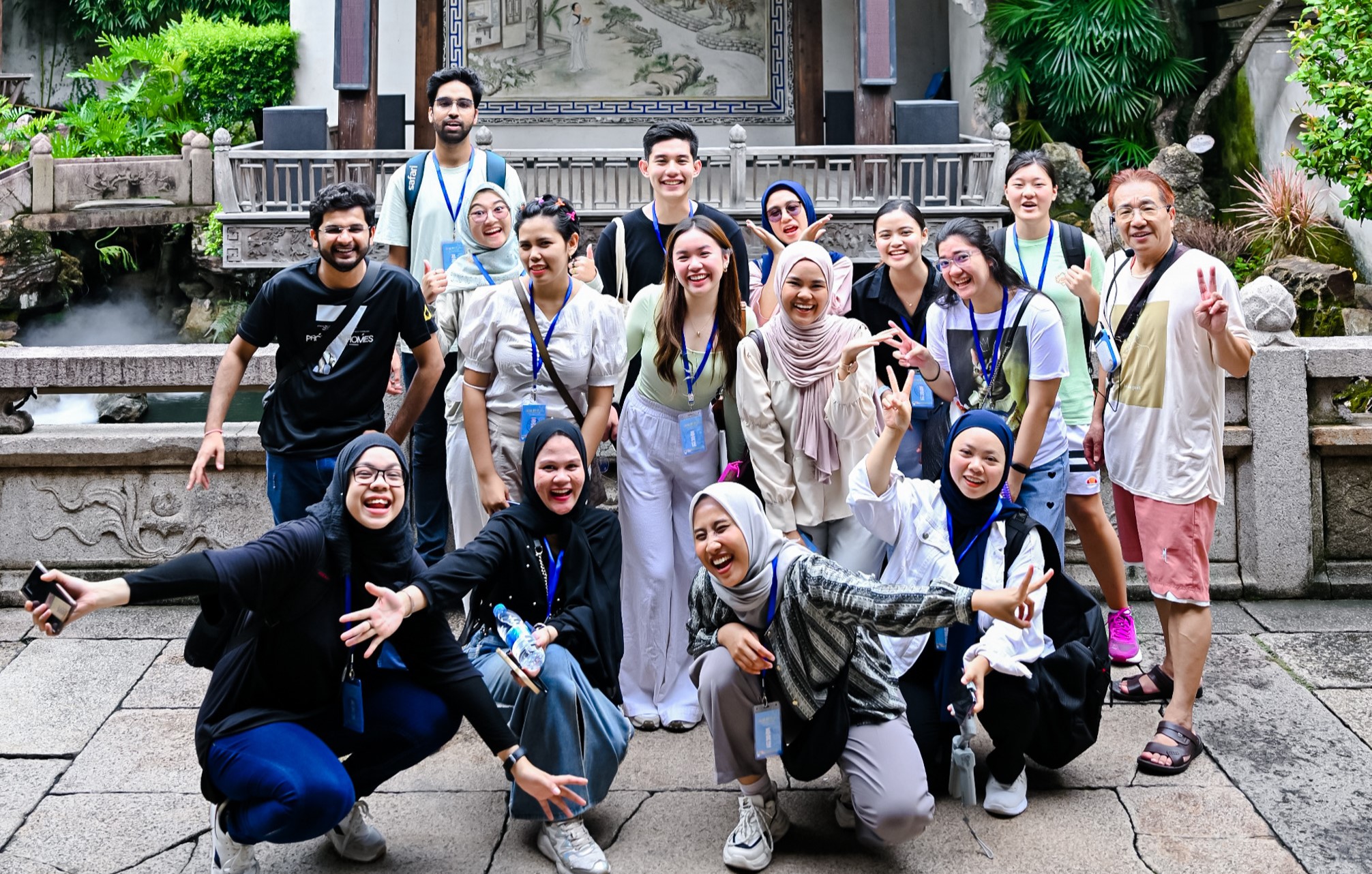On the occasion of the 35th World Mental Health Week, the Emergency & Psychology department of the SUSM [ Student Union School of Medicine , Xiamen University ] oragnized a Mental Health Workshop around the theme “ Emotional Balance Under Stress with Mindfulness " . The workshop began with an informative lecture on “Stress Management and Mindfulness”, followed by interactive activities, stress-relief exercises, and Q&A discussion, . The highlight of the day was an introduction to Acceptance and Commitment Therapy (ACT) - a modern psychological approach that teaches acceptance, self-awareness, and living in line with one’s values.
The workshop was led by Ms. Luo Chen a registered psychologist in the CPS system of the Chinese Psychological Association , Australian Psychological Association and the Australian Association for Counseling and Treatment .
Mindfulness
Ms. Luo Chen began the workshop with mindfulness practices . Participants were introduced to the WHO's illustrative guide, "Doing What Matters in Times of Stress," which outlines practical exercises for coping with stress. To help everyone experience calm and awareness, students were guided through a short mindful breathing exercise. The quietness that followed reflected a sense of focus and peace, showing how mindfulness can easily be practiced even in busy daily life.
Two groups of students performing mindful breathing exercises.
Learning Acceptance and Commitment Therapy [ACT]
The workshop introduced students to ACT , a practical approach to managing stress and emotions. ACT teaches that rather than fighting or avoiding difficult thoughts and feelings, we can accept them and still take meaningful action in line with our personal values. Students learned that focusing too much on problems can make them seem bigger, but by shifting attention to what truly matters, we can respond more effectively to stress. The WHO guidebook “Doing What Matters in Times of Stress : An Illustrated Guide”, provided simple exercises and strategies for coping with stress, such as mindful breathing, grounding techniques, and self-compassion practices. These small, evidence based methods help build emotional resilience and allow students to stay calm, focused, and in control even during challenging moments.
A therapeutic approach that encourages individuals to accept their thoughts and feelings instead of fighting them, and to commit to actions that align with their values. The message was clear : we can’t always control what happens, but we can choose how to respond.
Interactive Activities and Stress Relief Exercises
After the lecture, students took part in several interactive and stress relief activities that made the concepts easier to understand.
A. The Terrible Gift : In this game, each participant had to “gift” their partner something completely useless or ridiculous - for example, a broken pencil, a crumpled paper, or even “a box of air.” The other person then had to receive the gift with genuine appreciation and find something positive to say about it. This activity filled the room with laughter, but also carried a deeper message - even in unpleasant or unwanted situations, we can still choose to look for something positive. It reminded everyone that our attitude often matters more than the situation itself.
B. Focus and perspective exercise : In this exercise, students were asked to imagine a small issue or “problem” and then focus on it so intently that everything else around them faded away. The facilitator then explained how, when we focus too much on our problems, our entire world starts to shrink around them - we stop noticing the good things happening around us. The key learning was that sometimes, we need to step back, breathe, and shift our focus toward what truly matters instead of obsessing over what we can’t change.
C. Let It Go : In this exercise, participants were given small slips of paper and asked to write down things that cause them stress - it could be a fear, a personal struggle, a regret, or even a negative thought they often hold onto. After writing, each student placed their slip into a shredder. The sight of the papers being shredded symbolized letting go - releasing the emotional weight of those thoughts and making space for positivity and peace. The room was quiet, reflective, and deeply moving as students watched their worries turn to shreds.
Q&A Session: Sharing Thoughts and Doubts
Toward the end of the session, a Q&A discussion allowed students to ask questions and clarify doubts about mindfulness, stress management, and maintaining balance during busy times.
The biggest takeaway from the workshop was that stress is a part of life, but it doesn’t have to control us. By practicing mindfulness, learning to accept our emotions, and focusing on what truly matters, we can all build healthier, more balanced lives.

Closing and Takeaways
Students left the workshop feeling lighter, more self-aware, and empowered with practical tools to manage stress. Many shared that they planned to continue mindfulness practices at home or before exams, appreciating how simple yet effective the techniques were.
Through workshops like this, our school continues to promote emotional growth, resilience, and self-care . ensuring that students not only excel academically but also learn to take care of their mental well-being. Workshops like these play a crucial role in fostering a healthier, more empathetic community. As it rightly said, "Mental health is not a luxury - it's a necessity." By encouraging open discussions, teaching coping strategies, and promoting mindfulness, institutions take a vital step toward shaping individuals who are not only academically capable but also emotionally balanced and self-aware.
The Mental Health Workshop successfully achieved its goal : to remind everyone that it's okay to pause, breathe, and be kind to oneself.
A wall of posters and a drawings realed to Mental Health

